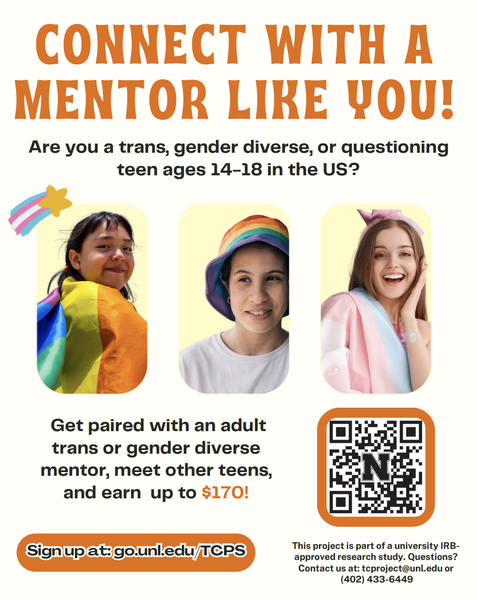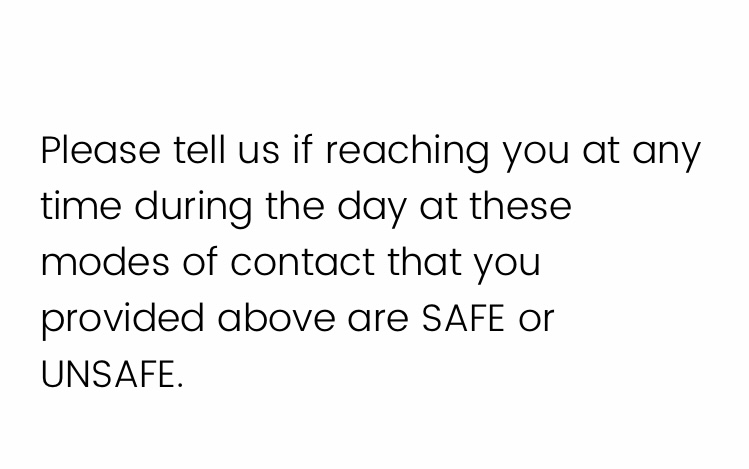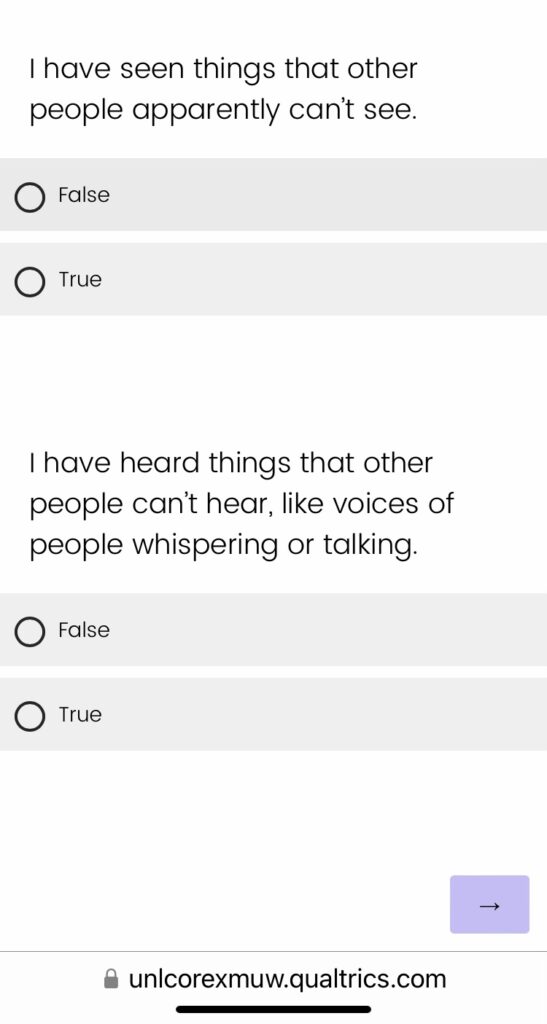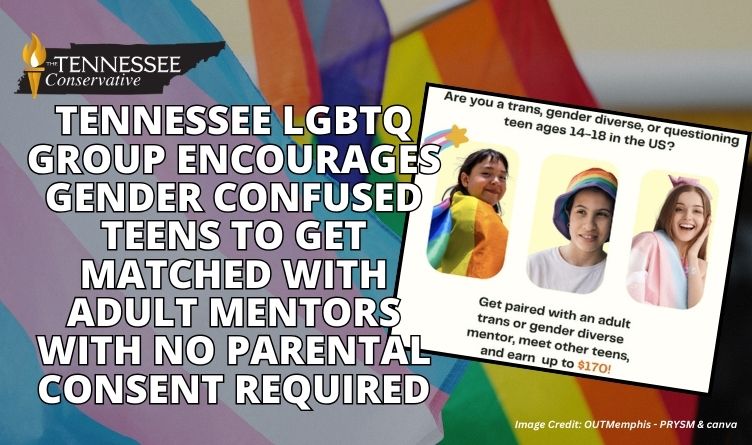Image Credit: OUTMemphis – PRYSM & canva
The Tennessee Conservative Staff –
PRYSM, the youth arm of a Memphis LGBTQ group that gives financial assistance to illegal aliens, encourages gender confused teens to get matched with adult mentors through a program that requires no parental consent.
According to a concerned parent that contacted The Tennessee Conservative last Friday, PRYSM sent a graphic through the Remind App to teens informing them that trans or gender diverse youth ages 14 to 18 could “connect” with a trans or gender diverse adult mentor, earning up to $170 in the process.

The sign-up website address takes teens to the beginning of a screening process for a research study called the Teen Connection Project being run by the University of Nebraska-Lincoln under the direction of “queer professor” Dr. Katie Edwards.
Launched last year, and set to run until the end of January 2025, the program is a pilot project funded by a National Institutes of Health (NIH) grant to the tune of $203,050 in which teens who are experiencing gender dysphoria take surveys, participate in weekly zoom meetings with other “transgender and other gender minority” (TGMY) youth, and are matched up with adult mentors who are also similarly confused about their gender, all without parental consent.

The consent form that all participants must read clearly states that “You do not have to get your caregivers’ / parents’ permission to be part of this project.”
The grant summary specifically states that a problem with other programs of a similar nature as the Teen Connection Project is that they “often require guardian permission” leading to LGBTQ youth being unable to participate in “high stigma, rural areas of the United States.”

The program aims to recruit 140 teens with half of them paired with one of 20 adult mentors for one-on-one online sessions and the other half placed on a wait-list for the control group. Teens who participate in the program will be sent gift cards to compensate them for their time.
Due to “minority stress theory” caused by “peer and family rejection and internalized transphobia,” the program aims to “identify effective programs that prevent psychosocial and behavioral health issues among TGMY.”
During the sign-up process teens are asked for their names, phone numbers, emails and home address and asked which of these contacts is “safe” or “unsafe” for members of the project to use to reach participants.

The screening questions include answering true or false if a teen has “seen things that other people apparently can’t see” and has “seen things that other people can’t hear, like voices of people whispering or talking.”
Presumably these queries are screening questions to assess if teens may have (or not yet know they have) a diagnosis of schizophrenia or bipolar disorder, but according to our source, answering in the affirmative did not disqualify would be participants.

In order to be part of the project, teens must agree to meet once a week for 7 weeks via Zoom for a 90-minute group program in which no-one but the teen can attend. The screening process specifically states that no siblings or parents can sit in on the sessions.
According to the grant summary, the 90-minute sessions are “co-facilitated by two [transgender or other gender minority] adults (who are also mentors).” After the group sessions, youth will be paired with an adult mentor “based on shared social identities and interests” for one-on-one mentor-mentee break-out sessions.

While the consent form says that mentors will not contact teens outside of the program, the screening process asks teens for their handles on various social media platforms. It is not known if the mentors have access to this information which could help them to contact teens after the program is over.




One Response
Demon possessed.